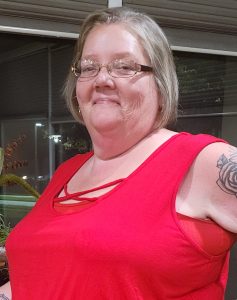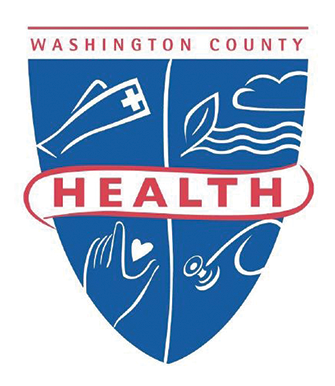
Recovery Month celebrations are more of a daily event year-round for Lisa Blair – not just something that happens in September. As a peer recovery specialist with Behavioral Health Services, her lived experience with addiction makes her empathetic to the core.
Lisa now has 15 years of “being clean” under her belt. She remembers being what she calls a “functioning addict,” before she walked into a rehabilitation program on Halloween, two days after trying to kill herself.
Lisa’s mental health and substance use issues can be traced back to a trauma she experienced at the age of 10. She began acting out in high school, first smoking pot before beginning cocaine use her senior year. Her father died a year after she graduated from high school, but her mother
supported her and never gave up on her until Lisa lost her in 2021.
“Although losing mom left me in a dark space for a while, the one thing she always wanted was for me to stay clean,” says Lisa. She will not disrespect her mom, she says.
The same year Lisa lost her mom, her granddaughter was born – her “sunshine after the storm,” she says. Sadly, darkness returned to Lisa’s life when the baby passed away at only six months of age.
Lisa says that while her 10 years of therapy has given her tools to live and lead through faith, the deaths of two so close to her was devastating.
“At the same time, I feel like because my soul was so deeply affected, by personal addiction and then deep loss, I can really understand the work that goes into recovery and that it is different for each individual out there,” she says.
Lisa says the dynamics of substance misuse has changed since the drugs have changed, pointing out the abundance of heroin and fentanyl in the mix. She firmly believes it will take a community wide solution to help.
Understanding the need for mental health resources, which she “always sees
in connection with substance abuse,” and stabilizing basic needs to help vulnerable people avoid relapses, will take everyone working together. It’s a “bigger picture,” she says, and “not just about giving out needles.”
Learn more about the Washington County Health Department’s Harm Reduction Program here: https://washcohealth.org/health-services/harm-reduction/

